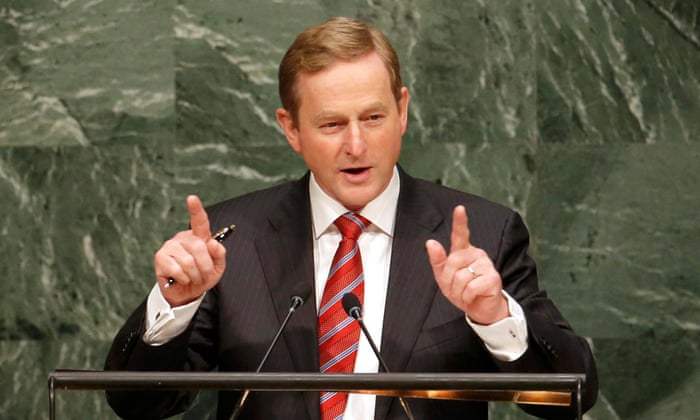Ireland set for minority government after two main parties reach deal
Fianna Fáil will stay in opposition but allow Fine Gael to govern until at least September 2018

Ireland finally has a new government after its inconclusive general election in February.
The Republic’s two main parties, Fine Gael and Fianna Fáil, struck a deal on Friday that will lead to a new coalition.
Fianna Fáil has agreed to facilitate a Fine Gael minority government in a “political ceasefire” between the two dominant political forces in the state. But Fianna Fáil will remain on the opposition benches in the Dáil, the Irish parliament.
After an intense day of discussions at Trinity College Dublin, the two parties’ negotiating teams described the arrangement as “the first initiative of its kind”.
It is understood that Fianna Fáil will allow Fine Gael to govern until a review of the coalition’s performance in September 2018.
The 14 independent deputies in the Dáil have been summoned to government buildings in Dublin to be briefed about the deal.
They will play a key part in the formation of the new government and will extract a constituency-by-constituency price for supporting a Fine Gael minority administration as well as demanding major reforms over the way the Irish parliament is run.
Michael McGrath, one of Fianna Fáil’s negotiators, said he was “pleased and relieved” that the formal discussions were over.
“Our own parliamentary party members remain on standby for a special meeting of the party to be called at any time over the weekend if necessary to approve or not approve at their discretion the document,” he said.
Alluding to the original divide over the Anglo-Irish treaty in 1921 that partitionedIreland into two states, leading to a bitter civil war and the formation of the two parties, McGrath said: “When you consider the history of those parties, the near 100-year history of our state, this is the first initiative of its kind.”
In the February election, Fine Gael, led by taoiseach Enda Kenny, lost 26 seats but it remains the largest party in the Dáil with 50 seats. Fianna Fáil made a stunning recovery from a historic low of 21 seats in the 2011 general election to 44 seats this year.
Sinn Féin remains the third-biggest party with 21 seats and whose increased presence in the Dáil was the main reason why Fianna Fáil will not sit in government.
With a so-called “grand coalition” between Fianna Fáil and Fine Gael proving a step too far for rivals whose enmities were forged in the Irish civil war, a minority Fine Gael-led administration, with the support of a number of independents, has been the only realistic option for weeks.
If Fine Gael manages to finalise negotiations with the independents quickly , a new taoiseach could be elected next week.
Three previous attempts in the Dáil to elect a taoiseach in the wake of the election ended in failure.
Sinn Féin’s president, Gerry Adams, accused Fianna Fáil of campaigning in the election to put Kenny out of office but striking a deal to keep him there. The Dáil member for Louth claimed Fianna Fáil had forfeited its right to lead the opposition.
“Whatever deal has been reached will, I have no doubt, fallen well short of delivering the change and investment required to tackle the housing and homelessness crises and fix our health service, and will not bring about a fairer, more equal society,” he said.
